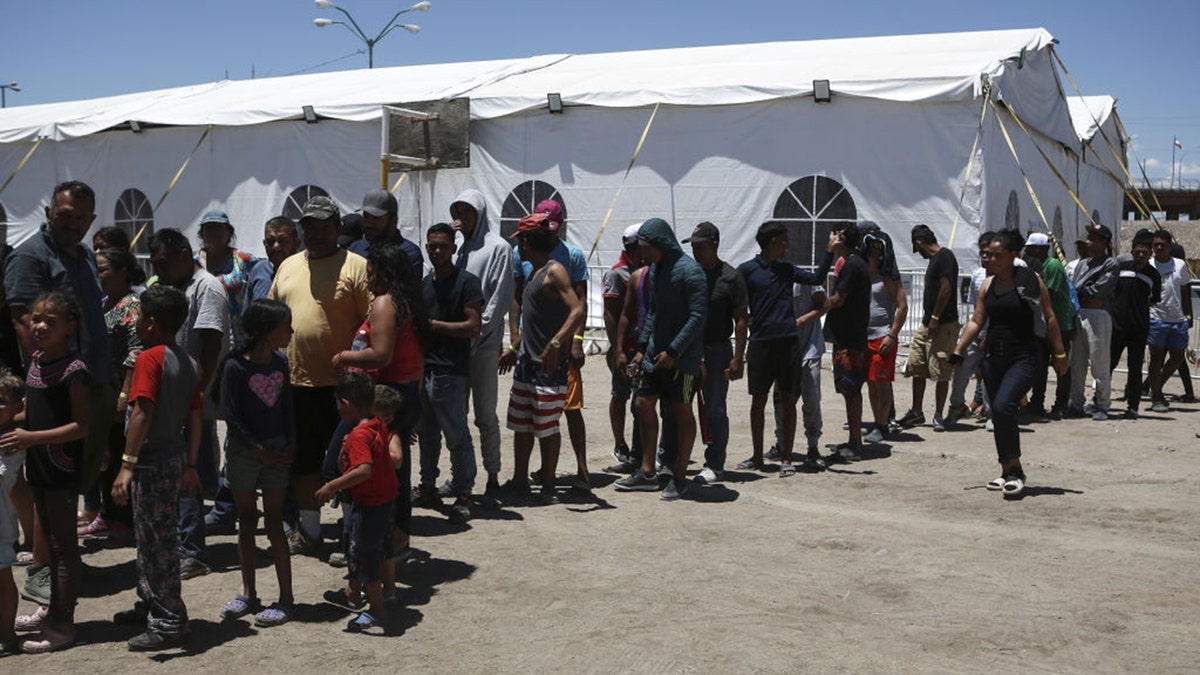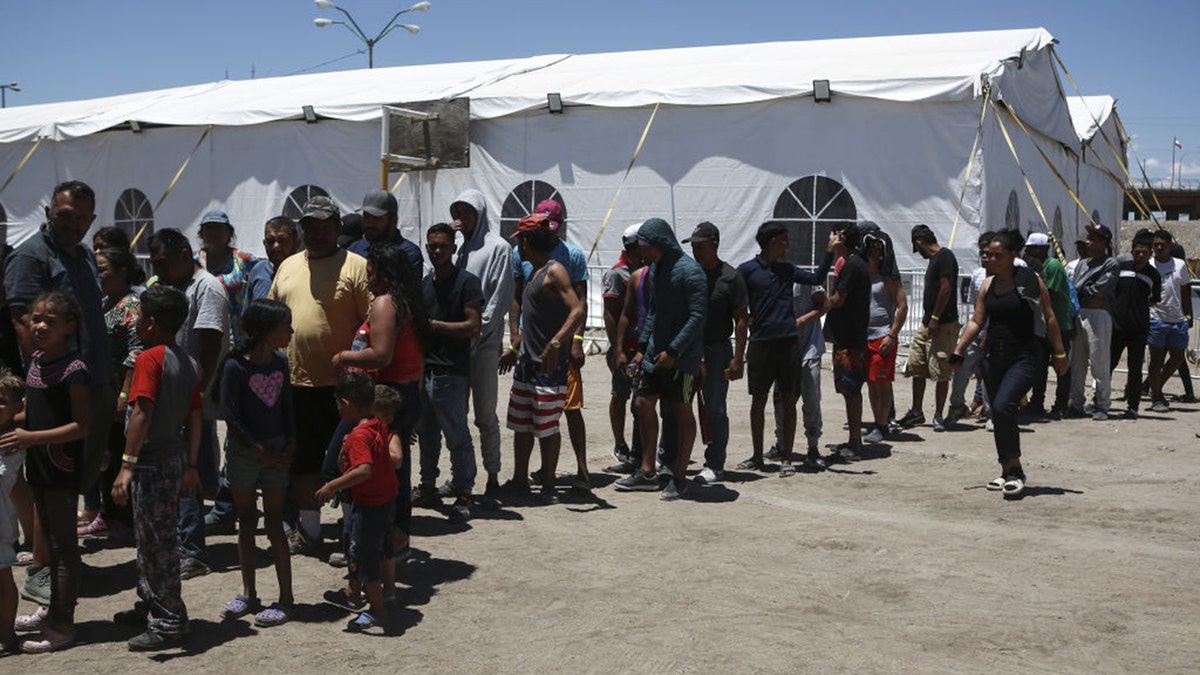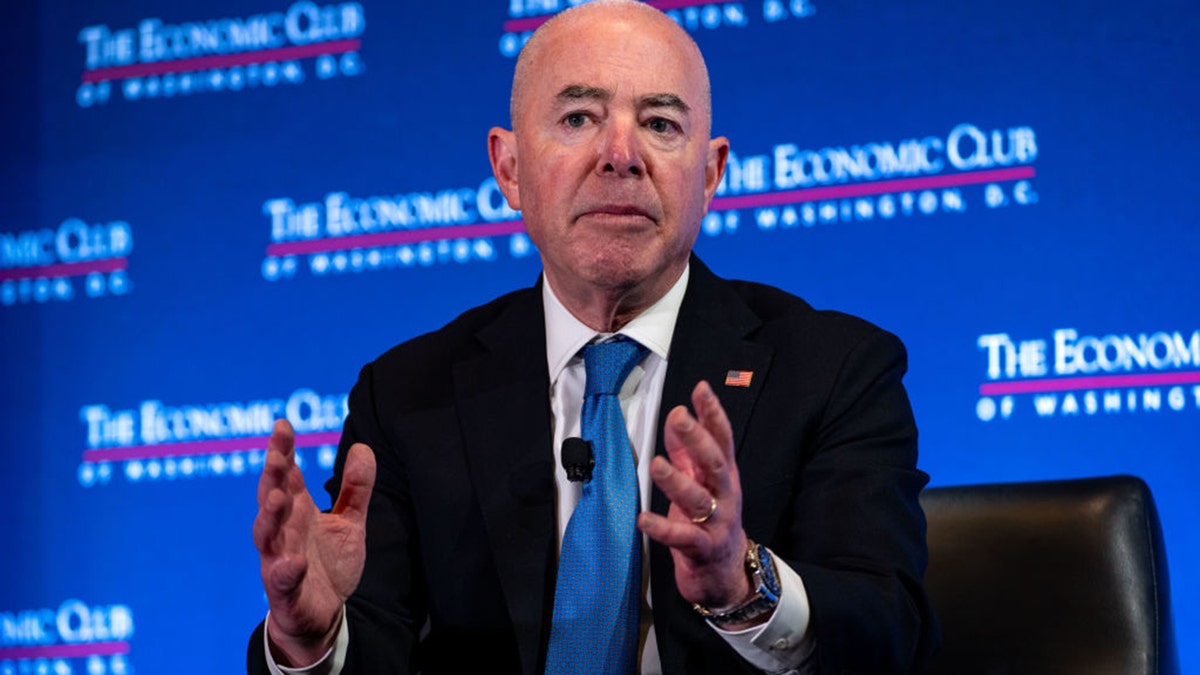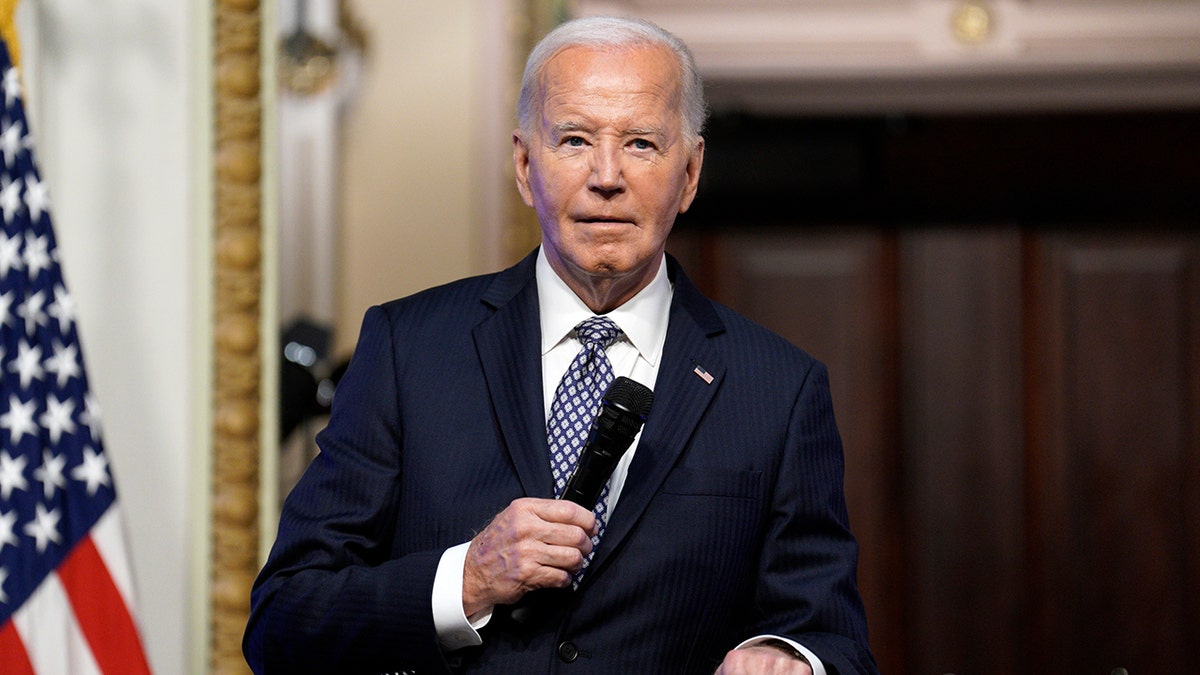
The Biden administration’s use of humanitarian parole to bring in migrants through “lawful pathways” as a strategy to end the crisis at the southern border remains under scrutiny amid an ongoing debate about Haitian migration — and as officials reveal how many have been allowed in under the programs.
The Biden administration, as it sought to control a spiraling border crisis last year, expanded two avenues for migrants to enter legally and be paroled into the U.S. One allows migrants to schedule appointments at the ports of entry using the CBP One app, and allows up to 1,450 migrants to enter daily.
The other is the parole processes for Cubans, Haitians, Nicaraguans and Venezuelans. Under that program, migrants with sponsors can apply for authorization without heading to the border and fly or transport themselves into the U.S. once approved and vetted. Up to 30,000 a month are allowed in under that program.
TRUMP REVEALS NEW PLEDGE AMID HAITIAN REFUGEE CONTROVERY: ‘I WILL SAVE OUR CITIES’

CIUDAD JUAREZ , MEXICO – MAY 23: Migrants wait in line to enter the shelter set up by the authorities for migrants as migrants wait for an appointment through the US Customs and Border Protection (CBP) one application in Ciudad Juarez, Mexico on May 23, 2023. ((Photo by Christian Torres Chavez/Anadolu Agency via Getty Images))
The administration released statistics on Monday showing that nearly 530,000 nationals from those four countries have been granted parole through the end of August 2024.
That is after the program was briefly suspended in July after an internal report found multiple instances of fraud from sponsors offering support to migrants coming in on the program. DHS announced last month that it had resumed processing of authorizations after it implemented new safeguards.
The fraud discovery led to fresh calls from Republicans for the administration to shut down the program. Republicans have said that the Biden administration’s use of parole is unlawful, saying it is in breach of the law — which limits the use of parole to a “case by case” basis for urgent humanitarian reasons or significant public benefit.
DHS has defended its use of parole, and has said it has been tied to a sharp drop in encounters when used.
“All CHNV beneficiaries continue to be thoroughly screened and vetted by CBP prior to their arrival to the United States and must meet other eligibility criteria authorization to travel to the United States in a safe, orderly, and lawful way once they purchase their own commercial airline tickets,” Customs and Border Protection (CBP) said on Monday.
“Since DHS has implemented these safe, orderly and lawful processes, encounters of CHNV nationals in between POEs are down 99%,” the statement said.
Separately, CBP says that approximately 813,000 individuals have scheduled appointments to be paroled into ports of entry using the CBP One app. In August, there were 44,700 appointments made.

WASHINGTON, DC – MAY 17: U.S. Homeland Security Secretary Alejandro Mayorkas, is interviewed by David Rubenstein, co-founder of Carlyle Group Inc, during an Economic Club of Washington event at the Marriott Marquis Hotel on May 17, 2024 in Washington, DC. ((Photo by Kent Nishimura/Getty Images))
It means that more than 1.3 million have been paroled in via the two programs since they began less than two years ago.
Those who are brought in are vetted, and are then allowed to stay for up to two years and can work in the U.S. But multiple Immigration and Customs Enforcement (ICE) sources have told Fox News that they do not have the workforce or resources to find and deport such a large population of people if they overstay.
The administration says that its strategy of expanding lawful pathways while implementing “consequences” for illegal entry has led to a sharp decrease in encounters at the southern border. There were 107,503 encounters at the border in August, down from 232,963 in August last year. Encounters have dropped by more than 50% since June, when President Biden signed an executive order that limited arrivals across the border when encounters reach a certain level. Officials have urged Congress to provide more funding and broader reforms to help fix what it says is a “broken system.”

President Joe Biden withdrew from his re-election bid in late July, endorsing Vice President Harris as his replacement. (Yuri Gripas/Abaca/Bloomberg via Getty Images)
“CBP continues to enforce the Securing the Border interim final rule and deliver strong consequences for illegal entry, and encounters between ports of entry remain at their lowest level in years,” acting CBP Commissioner Troy Miller said in a statement on Monday.
But the use of parole has come under fresh scrutiny not just due to the discovery of fraud in the CHNV program, but also due to the debate over the surge of Haitian migrants into towns like Springfield, Ohio, where 12-15,000 migrants have moved in recent years into the town of just over 60,000.
The use of parole was criticized by House Republicans in a report on Wednesday, obtained first by Fox News Digital, which accused the administration of having “wantonly flouted this law by granting parole to millions of illegal aliens and creating parole programs for various nationality groups, neither of which are consistent with the law.”
DHS has consistently defended its use of parole, and won a case against a coalition of Republican-led states challenging the law in March.
“These processes — a safe and orderly way to reach the United States — have resulted in a significant reduction in the number of these individuals encountered at our southern border,” DHS Secretary Alejandro Mayorkas said in a statement. “It is a key element of our efforts to address the unprecedented level of migration throughout our hemisphere, and other countries around the world see it as a model to tackle the challenge of increased irregular migration that they too are experiencing.”
Additionally, there have been a number of crimes allegedly committed by those brought in via parole, including a Haitian migrant accused of molesting a boy in Massachusetts. Meanwhile, Mexico last week put out a video of buses transporting migrants with CBP One appointments to the U.S. border. Former President Trump this week also renewed his pledge to end the CBP One app and the various uses of parole by the Biden administration.
CLICK HERE TO GET THE FOX NEWS APP
“As President I will immediately end the migrant invasion of America,” Trump said in a social media post on Sunday.
“We will stop all migrant flights, end all illegal entries, terminate the Kamala phone app for smuggling illegals (CBP One App), revoke deportation immunity, suspend refugee resettlement, and return Kamala’s illegal migrants to their home countries (also known as remigration),” he said.
Fox News’ Bill Melugin contributed to this report.







